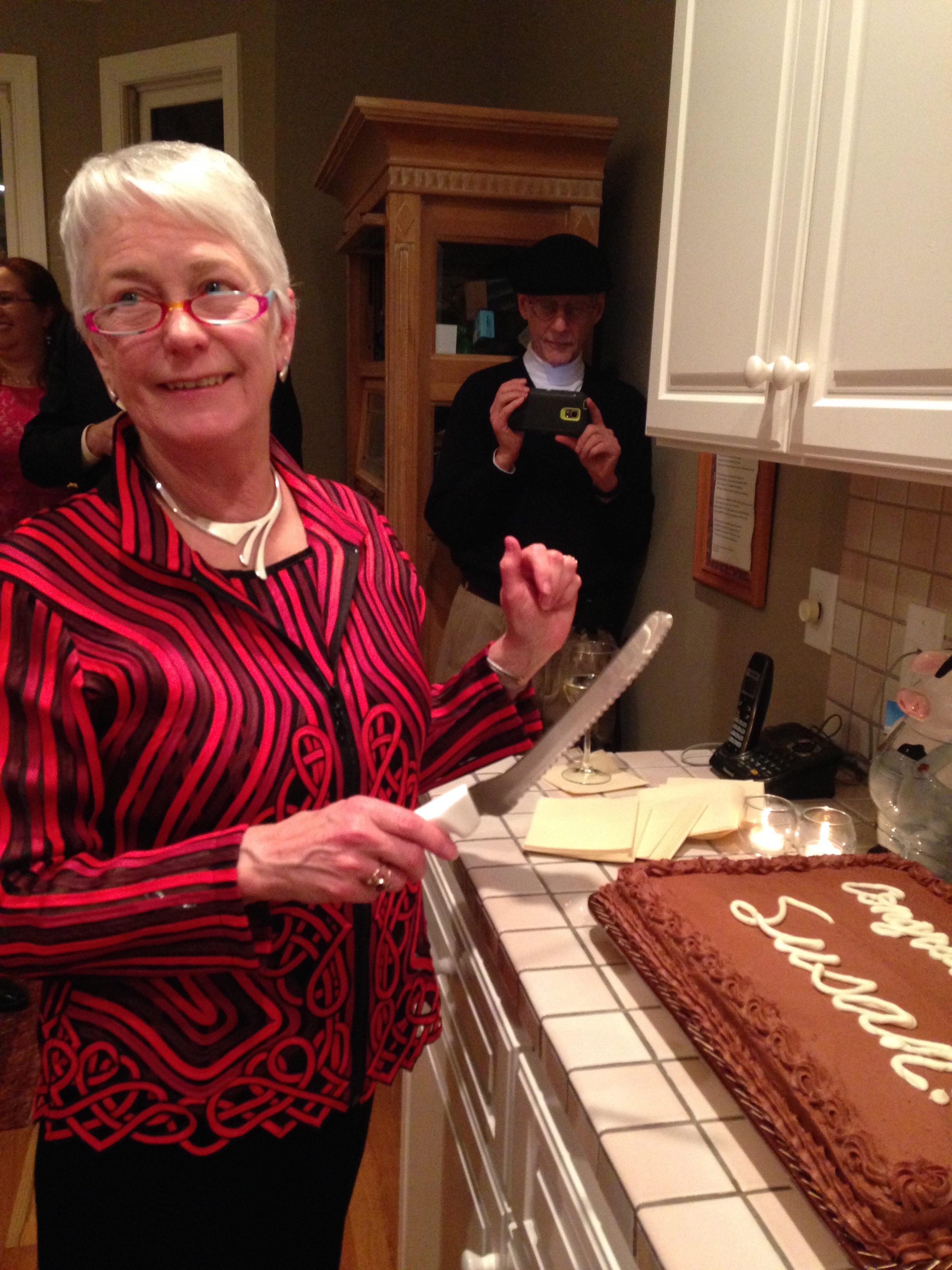“I love you,” declared a child’s voice among the crowd of health professionals gathered at the home of Myron Cohen, MD, Director of UNC’s Institute for Global Health and Infectious Diseases. The room erupted in laughter, but the sentiment expressed by the grandson of Susan Fiscus, PhD, summed up the feelings of everyone attending the party to mark Fiscus’ retirement.

“This is bittersweet,” said Cohen. “Susan is a wonderful friend and an honest, reliable and sensitive colleague. Every time discussion of her retirement comes up, we write other grants to ensure she will stay.”
But this time, Fiscus is leaving. She spent 25 years as Director of UNC’s Retrovirology Core Laboratory. Fiscus originally turned down the job offer after learning her husband’s request for a transfer from the United States Department of Agriculture (USDA) offices in Colorado to North Carolina had been denied.
“Then the USDA changed its mind and I called UNC. I knew the job had been filled, but I wondered if they had any other openings I would be qualified for,” Fiscus said. “When UNC told me the offer to the new person had fallen through, I immediately reapplied.”
Charlie van der Horst, MD, served on the search committee back in 1989 and remembers interviewing Fiscus.
“Susan was clearly the best candidate,” said van der Horst, UNC CFAR Developmental Core Director.
Stan Lemon, MD, hired Fiscus.
“Susan had strong scientific qualifications and a clinical lab background,” Lemon said. “She has been a great fit.”
Fiscus earned her bachelor’s degree in biology from Bates College and then pursued a master’s degree in botany from Duke University. She received her doctoral degree in microbiology from Colorado State University. Fiscus left Fort Collins, Colorado, to accept the position at UNC in 1989.
“The people who make up the first crew of a ship are called plank members,” said Ron Swanstrom, PhD, Director of the UNC Center for AIDS Research. “Susan is a plank member of the CFAR.”
Under her direction, the laboratory performed virologic testing for more than 400 adult and pediatric studies, both nationally and internationally. Fiscus worked on studies for the AIDS Clinical Trials Group (ACTG), the Pediatric ACTG, the HIV Prevention Trials Network, the International Maternal Pediatric and Adolescent AIDS Clinical Trials (IMPAACT) group, the Center for HIV/AIDS Vaccine Immunology (CHAVI) and the Center for Disease Control and Prevention (CDC). Fiscus’ research interest involved measuring HIV in different body compartments, such as semen, cervico-vaginal fluids, breast milk, and spinal fluid to determine the role these compartments played in HIV transmission and pathogenesis.
She co-chaired a recent ACTG study that showed combination antiretroviral therapy (cART) decreases the viral load in men and women’s genital tracts differently. The study conducted in seven countries showed women continued to have detectable genital tract viral load despite taking anti-HIV medications. Therefore, women would have a greater chance of transmitting the virus. She encouraged researchers conducting domestic and international studies to include the collection of genital secretions and other bodily fluids in their studies, and she gave them the tools necessary to conduct these tests.
“Susan helped set up our lab in Malawi,” van der Horst said. “She ensured measuring a person’s viral load in Lilongwe, Malawi, would be done the same way as in Chapel Hill.”
Known as a consummate collaborator, Fiscus worked with Catherine Wilfert, MD, a researcher at Duke who was among the first to propose giving pregnant women living with HIV anti-HIV medications to prevent transmission from mother to child.
“There were three babies at our Duke research site and three at our UNC site enrolled in ACTG 076,” Wilfert said. “Susan pulled together the information on these and other HIV-exposed infants born in North Carolina from 1993-1994 and demonstrated a significant decrease in the transmission rate from mother to child before and after the results of ACTG 076 were announced.”
Being elected the Principal Investigator for all of the domestic and international labs in the IMPAACT research network stands out for Fiscus as a career accomplishment. She served in this capacity for more than 7 years. Throughout all of the roles she held during her time with UNC, IMPAACT and the ACTG, Fiscus says she will miss her colleagues the most.
“I am truly lucky to have worked with such amazing people for the past 25 years,” she said.
Fiscus is looking forward to having more time for quilting and researching her family’s genealogy during retirement.
